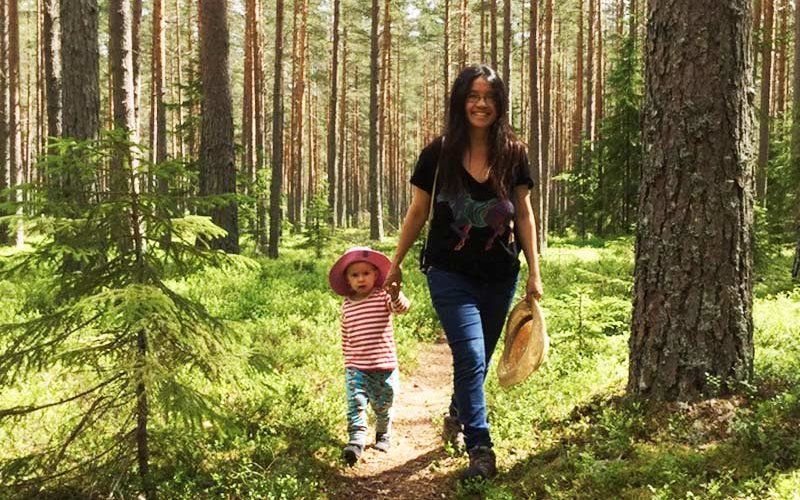
Nga Nguyen’s curiosity about the world began at an early age in the pages of her favorite books and continues to deepen today in her work as an evolutionary anthropologist. “As I get older, I’m more confident in saying, ‘I don’t know, but I want to know more,'” she says.
The Cal State Fullerton professor of anthropology was recently awarded a nine-month Fulbright Scholarship to study how time spent in nature affects Norwegian children’s play behavior and microbial diversity.
The distinguished scholarship program, facilitated by the U.S. Department of State Bureau of Educational and Cultural Affairs, aims to increase mutual understanding between the United States and other countries.
While in Oslo, Norway, Nguyen will observe preschoolers attending both conventional and “nature” preschools — where a majority of the day is spent outdoors — to see if girls and boys play in less gendered ways. She also will study the gut microbiota of both groups of children, through the noninvasive gathering of fecal samples, to better understand the health benefits of time spent in nature.
“My hypothesis is that because of greater time playing outdoors in nature, children attending nature preschools will exhibit less gender segregation in play behavior and greater functional diversity in their microbiota than children attending conventional preschools,” says Nguyen.
The study is a slight shift in research for the anthropologist, who — along with husband, Peter Fashing, also a CSUF professor of anthropology — have been leading a long-term study of a wild population of gelada monkeys at Guassa, Ethiopia, since 2005.
“For a long time, I’ve been immersed in studying baby monkeys, their mothers and their relationships,” she explains. “When I became a parent myself, I became interested in how human children develop, particularly the long-standing debate about whether it’s nature or nurture that influences the expression of sex differences in boys and girls.”
As children in industrialized countries spend less time playing outdoors and more time indoors, Nordic countries’ (Norway, Sweden, Finland, Denmark, Iceland) — famous for topping lists such as the United Nations’ World Happiness Report — emphasis on spending time in nature may hold clues to their overall physical and mental well-being, says Nguyen.
Nguyen will travel to Norway during the 2019-20 academic year and looks forward to sharing her research with students in such courses as “Introduction to Biological Anthropology,” “Primate Behavior,” “Hormones and Behavior” and “Primate Conservation.”
“I think it’s exciting to come back to the classroom and share that journey of discovery with students,” she says. “It shows them that there’s a lot more to learn. And if you’re curious, like me, the world is your oyster.”